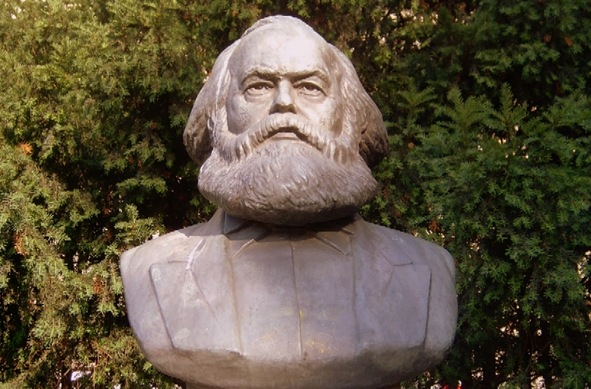Leszek Kolakowski (1927 – ) is a philosopher and author of the influential book Main Currents of Marxism. An enthusiastic member of the Polish Communist Party, he became disillusioned with Marxism in 1950, following a visit to Moscow, and was exiled in 1968 from his country for speaking out against his comrades. In 2002, reflecting on his past experiences, Kolakowski demonstrates that because Marx’s theories about capitalism were flawed all his central predictions regarding the glories of communism have proven to be wrong. The tragic legacy of Marx sheds a sobering light on the utopian promises of social progress that are currently being made by some of our politicians. As the sage has said, “Those who forget the past are doomed to repeat it.”
All of Marx’s important prophecies, however, have turned out to be false. First, he predicted growing class polarization and the disappearance of the middle class in societies based on a market economy. Karl Kautsky rightly stressed that if this prediction were wrong, the entire Marxist theory would be in ruins. It is clear that this prediction has proved wrong; rather, the opposite is the case. The middle classes are growing whereas the working classes in the sense Marx meant it has been dwindling in capitalist societies in the midst of technological progress.
Second, he predicted not only the relative but also the absolute impoverishment of the working class. This prediction was already wrong in his lifetime. As a matter of fact, it should be noticed that the author of Capital updated in the second edition various statistics and figures but not those relating to workers’ wages; those figures, if updated, would have contradicted his theory. Not even the most doctrinaire Marxists have tried to cling to this obviously false prediction in recent decades.
Thirdly, and most importantly, Marx’s theory predicted the inevitability of the proletarian revolution. Such a revolution has never occurred anywhere. The Bolshevik Revolution in Russia had nothing to do with Marxian prophesies. Its driving force was not a conflict between the industrial working class and capital, but rather was carried out under slogans that had no socialist, let alone Marxist, content: Peace and land for peasants. There is no need to mention that these slogans were to be subsequently turned into their opposite. What in the twentieth century perhaps comes closest to the working class revolution were the events in Poland of 1980-81: the revolutionary movement of industrial workers (very strongly supported by the intelligentsia) against the exploiters, that is to say, the state. And this solitary example of a working class revolution (if even this may be counted) was directed against a socialist state, and carried out under the sign of the cross, with the blessing of the Pope.1
![]()
Footnotes:
![]()
1 Leszek Kolakowski, “What Is Left of Socialism,” First Things 126, (October 2002): 42-43,





